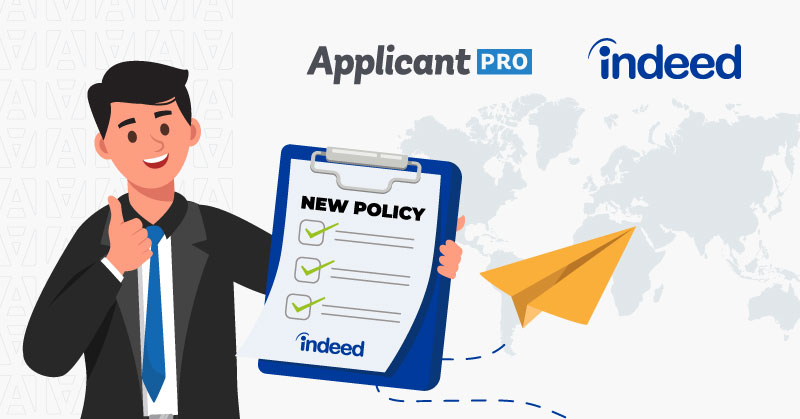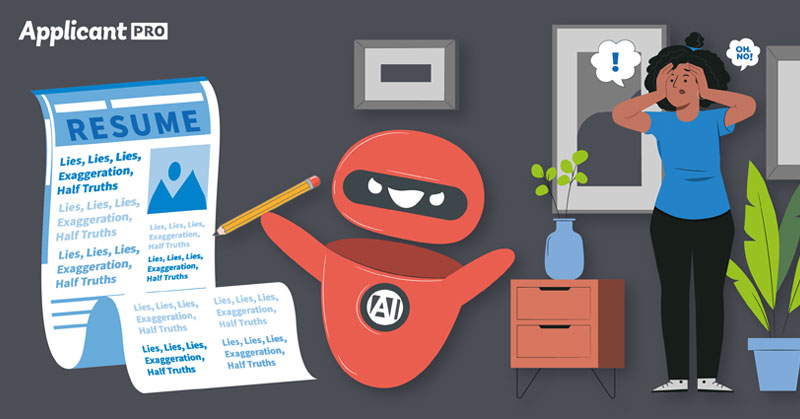

Do you have a competitive advantage when it comes to hiring?
Gas prices are on the rise again, so I figured I'd use that as an example of how that same approach is being used in the job marketing world by employers trying to find more applicants.
Yes, gas prices are going way up, but more importantly, I want you to think about gas as a commodity. When you're driving down the street and you see a high price at one gas station, most likely all the other gas stations within proximity of that station are matching its price, plus or minus a few pennies.
Simply put, gas IS a commodity!
Attract More Highly Qualified Applicants
We spend countless hours researching the most effective, easy to implement, and FREE strategies that will dramatically boost your qualified applicant flow.
You most likely don't have a favorite gas station unless it's based on one of two things: either it's on the right side of the road as you're headed to work or the price is cheaper. There's nothing wrong with buying gas based on the cheapest price, but that is evidence of it being a commodity marketplace.
When gas stations try to use price as a competitive advantage they simply lower their price by $0.02 and get some people to come buy gas from them. While that may give them a bump in revenue or a bump in customers, it is a short-won battle because within a few hours, the owner across the street goes out sees that they're now overpriced, and lowers their price as well.
The problem with using pricing as a competitive strategy is, while it's the easiest one to implement, it's also the easiest one to copy! What that leads to is all the competitors driving the price down to beat each other until one of them is only making a penny.
How does this help me with hiring?
What does this have to do with the employment world? It's really quite simple, as the employment world over the last ten plus years has gone online and our access to information has gone up, employers have turned the job market into a commodity marketplace. I don't think it was done on purpose, but it is what ended up happening.
You see, when employers follow best practices, specifically when it comes to their job ads (meaning they're copying each other's ads, they're copying a template for the industry, they're copying a template of a job ad for a given job, etc.), they're trying their best to compete and make their job "comparable to everybody else's."
But when everybody who's hiring for a given job in a given town makes their job comparable by effectively making them all sound the same, then the only way for a job seeker to pick whether to apply to one job or the other is the same way you pick gas: based on price!
It just happens to be the opposite, instead of looking for the cheapest price for gas, they look for the highest-paying job given that everything else is the same.
What does this mean for the competition for talent?
Over time this leads to a very single way for employers to compete for talent, just by changing their pay rate. That is how it's been for a long time, but it becomes more evident when there's a disruption in applicant flow.
When all of a sudden there are more jobs than there are job seekers, like there are today, then the employers get more aggressive with the only lever that they tend to pull...money.
The employers increase their pay. That seems to get people to come in and apply to work for them until their competitor increases their pay and then their employees leave and go to that employer.
The same approach has been used on the job boards. Employers assume that if they're struggling to get applicants from the job boards they can simply pay more money. They will see a short-term bump in applicants, but then all of their competitors respond by also increasing their spend and it just goes on and on.
There's nothing wrong with increasing pay, using sign-on bonuses, or increasing your spend on the job boards unless you think it's a long-term effective strategy or a competitive advantage, which it is not.
Using money to solve your sourcing problems is just a race to the bottom.
What I mean by that is when all the employers in a given space determine that they will use money as the way to compete for talent (either spending on advertising or money and pay), what you've done is set the stage for the game to be won by the people with the most money.
If you're the biggest dog in the fight, if you're the company with the most money, the biggest team, the biggest brand, if you've been around the longest, then you can win that fight by being the one at the top.
So what does this mean for employment?
Well, if you're a smaller employer, you should analyze who you compete with for talent and ask yourself these questions:
- Of all the people competing for the mass group of job seekers in this market, do we have the most money?
- Do we have the most scale?
- Do we have the most ability to have a money fight for the talent?
If your answers are yes, then you can keep doing what you're doing...but if you're a smaller business, if you're the underdog, or even a middle-sized company in this fight, you're going to have to find something else to do long-term.
Short-term you can keep running your money strategy, but long-term you're going to have to come up with a differentiation strategy instead of a "spend-more-money" strategy.
That is how people fight against giant companies. They don't fight by playing to those company's strengths, i.e. money, scale, and brand, they fight by playing to their own strengths: agility, creativity, and focusing on a narrow niche of the base that doesn't like what the big companies have to offer and leaning into that target audience.
That is the winning strategy that beats the current wrong approach of simply throwing money at what's going on. This is a strategy that works in almost every marketplace.
Are you a disrupter?
In history, every time a disrupter enters the marketplace to disrupt the bigger, giant providers in a commodity space, they follow the same exact flow:
How to Become a Disruptor in the Hiring World
1. A Disrupter's goal is to be different, not the same!
Their goal is not to match all the features of everybody else but to drill in on very specific features for a very specific target market. What does that mean? Look at all the people out there who want to do your job and find a segment of that group that doesn't like working for those bigger competitors. You can figure this out by reading the reviews on job boards.
2. Go study those people and figure out what it is they want in a job.
We call that the disaffected segment or a disaffected niche. You need to find out their pains.
3. Focus on the job seekers pains that really matter to them.
Figure out exactly what it is, when you rank and prioritize those pains, that are more important than money. It might be flexibility, working from home, not working on the weekends, having a great boss, or it could be that they want more variation in what they do instead of a very specific job.
**Now here's the switch point: focus on providing a unique solution to those pains, meaning adjust your job so it's not like working for everybody else! Promise to be a unique solution!**
4. Earn credibility!
Keep your word, and show proof of it when you set the stage. Instead of trying to be like everybody else, focus on being unique and authentic. You will find that, while it might be scary at first, your employees become more loyal.
At that point, you suddenly start getting more and more applicants that are highly qualified that fit the unique culture and experience of working for you, instead of just appearing to be like everybody else in the marketplace.
Don't become just another commodity in the marketplace...be a disrupter and find a way to make you stand out so that job seekers will choose you over the money!
If you want to chat about how to do this for your company, click the button below to set up a time to chat!

Increase qualified applicant flow across the board.
Download this exclusive guide to improve your qualified applicant flow.
Share this article
Related Articles

Could You Benefit From Recruitment Marketing?
Are you struggling to recruit top talent while juggling a busy schedule? ApplicantPro's Recruitment Marketing services can streamline your hiring process. We partner with you to attract, convert, and retain high-quality candidates.

Navigating Indeed's Updated Organic Job Visibility Policies
As a Platinum Partner with Indeed, we're here to guide you through key updates to Indeed's job visibility policies and how they impact your hiring strategies. Learn best practices for maintaining organic visibility and discover how sponsorship can accelerate tough-to-fill roles.

Is AI Making Hiring Impossible?
Have you noticed the growing trend of job seekers using AI to create resumes, cover letters, and complete assessments? Learn strategies for spotting AI-generated applications, and how employers can adapt their recruitment processes to ensure they hire qualified candidates.